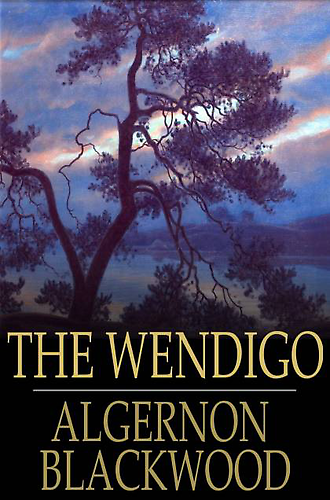
Book Review: The Wendigo by Algernon Blackwood
Written in 1910 by Algernon Blackwood, The Wendigo popularizes an evil creature of legend from the Algonquian people of Native American Indians. The wendigo is a cannibalistic spirit that can either possess humans or is the creature in which humans can transform. Often described as extremely gaunt, skeletal gray in color and smelling of decaying flesh; the wendigo is associated with freezing winters, extreme famine but also gluttony.
In Blackwood's tale, a small hunting party embarks on an expedition through the dense and unclaimed northern Canadian wilderness to track moose. Splitting into two pairs, the main characters Simpson and his native guide, Defago, are subjected to intensely bizarre and unnerving events. After Defago disappears and is eventually found, Simpson realizes Defago's behavior mirrors that which he had been warned.
Though heavily measured and wandering, The Wendigo plods the reader through the barren wilderness as if they were a part of the distressed hunting party. Each slowly meticulous paragraph establishes a foreboding sense of dread of the unknown. Blackwood’s Wendigo is a literary classic in the horror genre and influenced several contemporary writers such as Stephen King and HP Lovecraft. Slow to get through and lacking in the extreme gore that is often present in 21st century horror, Blackwood’s classic campfire tale is an eloquently latent haunt that will subconsciously linger longer than any bloodshed.

